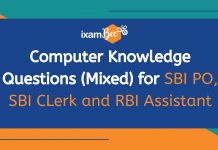ARTICLE 35A
Indian constitution is one of the largest constitutions in the whole world which consists of numerous articles and parts which provide many fundamental rights to the Indian citizens and also marks the fundamental duties of each citizen of the nation. India become a large democracy imparts complete freedom of speech to its citizens and gives them full right to carry on with their lives in their own way simultaneously following the guidelines and duties. The nation has still come across many changes in the constitution since the time it came into force. There have been several amendments so far to suit the best interests of the countrymen. In the same direction, (Home minister) Amit Shah announced on Monday, August 5th 2019 that the government has decided to revoke article 370 and 35A of the constitution which grants special status to J&K. The reason behind doing this is not political, it was needed to be done because it weakens the power of constitution of India in the state, says Amit Shah (Home Minister).
Soon before the announcement, section 144 was imposed in the valley. Internet services and mobile services were suspended and all public gatherings were banned in Srinagar. Tourists were told to go back due to terrorists’ threat where non-resident students of NIT Srinagar were also told to return.
Origin of Article 35A
Article 35A came into the constitution by an order of the ‘then’ president Rajendra Prasad with the advice of the Jawaharlal Nehru cabinet. It was done under 1952 Delhi agreement. It was made to frame its relationship with the country. Article 35A empowers the people of state of J&K and gives permanent resident status to the people of the state. They enjoy certain privilege and special rights given to them. Those are:
-
- The resident of this state enjoys dual citizenship one of the state and other of the country.
- Other than the permanent resident, no one is eligible to buy or own a land or immovable property in the state.
- Government job will be given only to the permanent resident of the state.
- Oher than the permanent resident no one can get admission in professional government colleges of the state or get any government aid out of government funds.
- A permanent resident has a right to vote in the assembly elections.
- A permanent resident has a right to get scholarship by government for education.
Where on one side Article 35A give special rights to the permanent residents it was criticised for many other reasons, some of which are given below:
Criticism of Article 35A
- The very first reason it was criticized for was that it was introduced through presidential order and was never presented before the Indian parliament for voting under article 368.
- With the enforcement of Article 35A, Article 14(equality before law and equal protection of the laws) and Article 21 (right to life and liberty) are violated.
- The non-resident doesn’t have rights and privileges as permanent resident, they are treated as second class.
- Kashmiri women of the state will lose their dual citizenship if they get married outside the state which got changed after 2002 judgement, which states that it’s discriminating for the Kashmiri women although their children will not get the citizenship of the state
- It was discriminatory for the western Pakistani migrants also; they are not given the permanent resident status and are still living as a refugee in the state.
- It was discriminating for the workers and settlers of scheduled castes and scheduled tribes and other tribal people who were living there for generations. They were not allowed to apply for any other position other than a cleaner.
- Because no one is allowed to own land and start a business in the state lack of industrial sector and private sector results in unemployment of the youth as government jobs are also limited.
Consequences of Revoking Article 35A
Jammu and Kashmir is now an integral part of India. No special rights will be given to the people of Jammu and Kashmir and to the state itself. They will hold same rights as the citizens of other states of India. Jammu and Kashmir is no longer a state now. A request of making Jammu and Kashmir a Union territory has been passed in Rajya Sabha on Monday.
It has been divided into two.
- Jammu and Kashmir (with legislature).
- Ladakh (without legislature).
Both will enjoy a status of union territory now.
Changes after Removal of Article 370
Now, what changes in Jammu and Kashmir will come after scrapping of article 370? Lets have a look:
| WITH ARTICLE 370 | WITHOUT ARTICLE 370 |
| Dual citizenship (state and country) | Single citizenship(country) |
| RTI was not applicable | RTI will be applicable |
| Has their own separate flag of the state | Will not have a separate flag fir the state. |
| Other resident cannot buy a land in J&K | Will be able to own a land there |
| There were no reservations for minorities | Minorities will be eligible |
| Financial emergency was not applicable (article 360) | Article 360 Will now be applicable |
| Special powers were given to the state | It will be treated as any other state of the country |
| The Duration of legislative assembly was 6 years | Assembly duration will be 5years. |
Also Read:
Get Free Online Test Series, GK updates in form of Beepedia, as well as latest updates for Bank PO, Bank Clerk, SSC, RBI, NABARD, and Other Government Jobs.
микро займ на картуонлайн заявка на займ на картуэкспресс займ онлайн заявка















